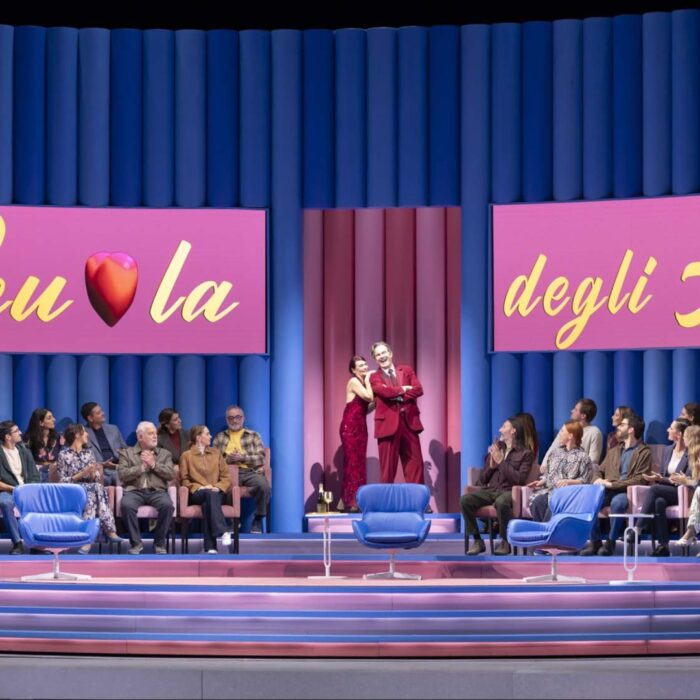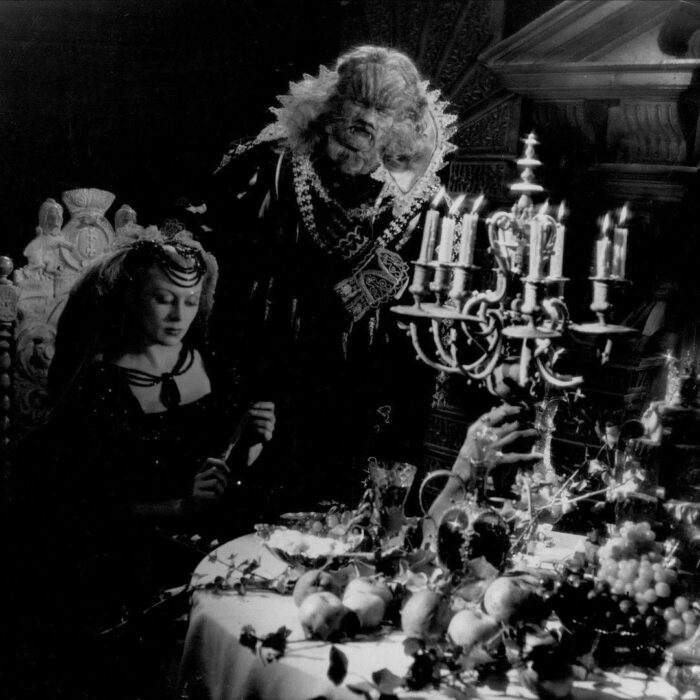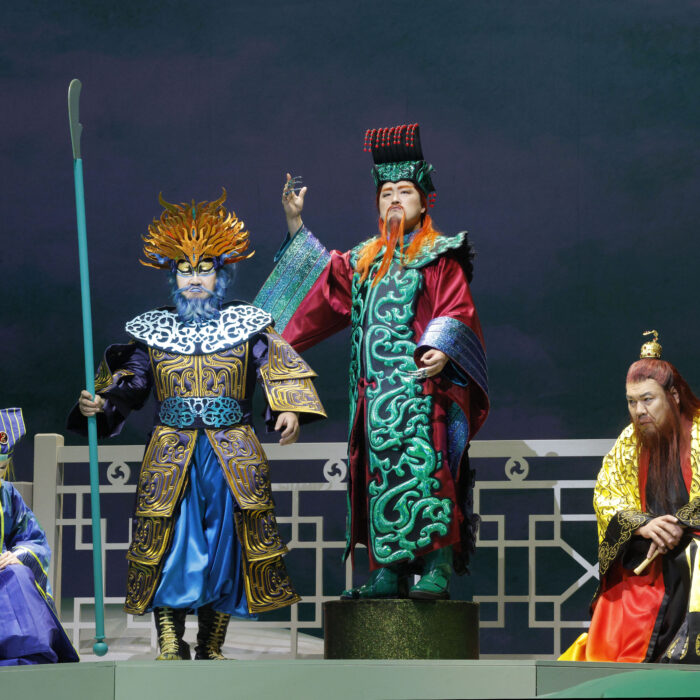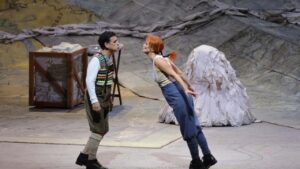
Teatro alla Scala 2024-25 Review: La Fille du Régiment
By Bernardo Gaitan(Photo: Brescia e Amisano / Teatro alla Scala)
When Gaetano Donizetti arrived in Paris in October 1838, he was already one of the great figures of bel canto. Yet what he sought in the French capital was professional stability and institutional recognition–something Italy had not always granted him. Within a few months he had conquered, along with the French language itself, the Parisian stage, dominating the billboards of the city’s leading theaters.
In that feverish context of activity, Donizetti accepted in 1839 a commission from François-Louis Crosnier, director of the Opéra-Comique, to compose a work that adhered to the conventions of the national genre: an alternation between sung sections and spoken dialogue–unlike the Italian tradition, which strictly employed recitatives–a comic tone, everyday settings, and melodies tinged with nationalism. The result was: “La Fille du Régiment,” written with astonishing speed and premiered on February 11, 1840. Donizetti’s opéra-comique offers a richer theatrical texture, where military clichés serve merely as a pretext for the action, leaving aside any real war references. However, the premiere was not a success: Parisian critics were harsh, calling the work “noisy” and “insufficiently French,” while also reproaching its sets and costumes. Hector Berlioz, in a famous article in Le Journal des débats, quipped: “Soon we will no longer speak of the theaters of Paris, but of the theaters of Donizetti.”
Time, fortunately, vindicated the composer. “La Fille” remained on stage for over fifty performances during its premiere run and reached the Teatro alla Scala almost immediately in its Italian version. Since then, the Milanese theater has maintained a privileged bond with this score. It was precisely with the acrobatic aria of the “nine high Cs” that in 2007, Juan Diego Flórez amid thunderous ovations broke Arturo Toscanini’s long-standing ban, in force for seventy-four years, on encores at La Scala after a flawless performance. The tenor would repeat the gesture in 2008 at New York’s Met.
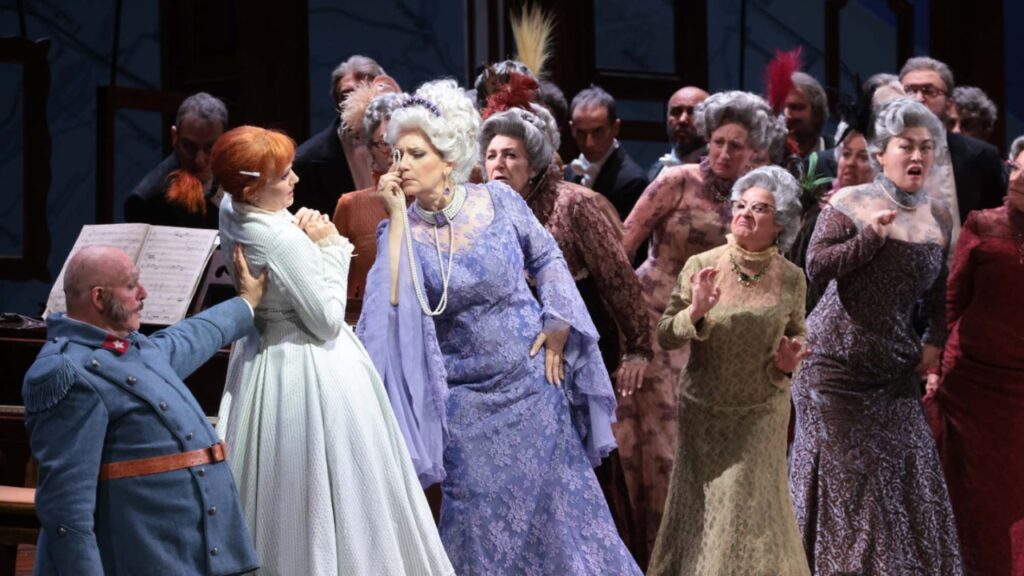
(Photo: Brescia e Amisano / Teatro alla Scala)
Production Details
The current La Scala production revives the celebrated staging by Laurent Pelly, first created in 2007 for Covent Garden and since then an international benchmark. Interestingly, this production is being presented simultaneously at both La Scala and the Metropolitan Opera, arriving in Milan for the first time with its freshness intact and a theatrical precision that continues to fascinate.
Pelly relocates the action to World War I, replacing Napoleonic battles with a more relaxed trench setting in a time of relative peace. The temporal shift works: the war becomes merely a pretext to justify the regiment and to fill the stage with humor, camaraderie, and quintessential “Frenchness.” The stage direction, of millimetric precision, was revisited by Christian Räth, who expanded every gesture, gag, and transition of the spoken dialogue, rewritten and updated in french with finesse by Agathe Mélinand. The performers not only sing but act with an exemplary sense of the comique genre. The timing never falters; rhythm and internal logic remain constant, confirming why this production remains and will likely continue to be unbeatable.
Chantal Thomas designed a functional set that promotes the fluidity of the action: a visual space blending humor, poetry, paper, and geography: mountains made of maps, barracks with metal beds, a pretentiously elegant house, and everyday objects transformed into powerful theatrical symbols. Joël Adam’s balanced lighting created a unified atmosphere, despite some notable technical errors during the performance. The costumes, designed by Pelly himself, mix World War I uniforms with elegant early-20th-century attire for the nobility: the Marquise and the Duchesse appear exquisitely dressed, evoking the irony of an aristocracy in wartime decline.
Musical Highlights
Evelino Pidò’s musical direction, returning to the podium after “Don Pasquale” in 2024 proved bittersweet. His reading, characterized by meticulous phrasing and appreciable care for orchestral color, nevertheless lacked theatrical timing and at times affinity with the bel canto style. His approach drew on contrasts between rhythmic drive and melodic simplicity, though somewhat weighed down by a lack of lightness and narrative agility. There were touching and finely shaped passages in the Overture and in the opening prayer “Sainte Madone!,” performed with notable delicacy. Rhythmic precision in the arias and careful control of volume were definite assets. The cor anglais was beautifully highlighted in Marie’s romance, and, as expected, the military drum stood out; yet in livelier ensembles such as “Chacun le sait” and “Salut à la France,” spark and vitality were missing, resulting in a certain flatness.
The Teatro alla Scala Orchestra played with professionalism. They were polished and elegant, though somewhat lacking the spontaneity typical of opéra-comique. The La Scala Chorus, prepared by Alberto Malazzi, was undoubtedly one of the evening’s strongest assets: rhythmic precision, sonic balance, and surprising theatricality. Their performance was flawless, earning the loudest ovations of the night.
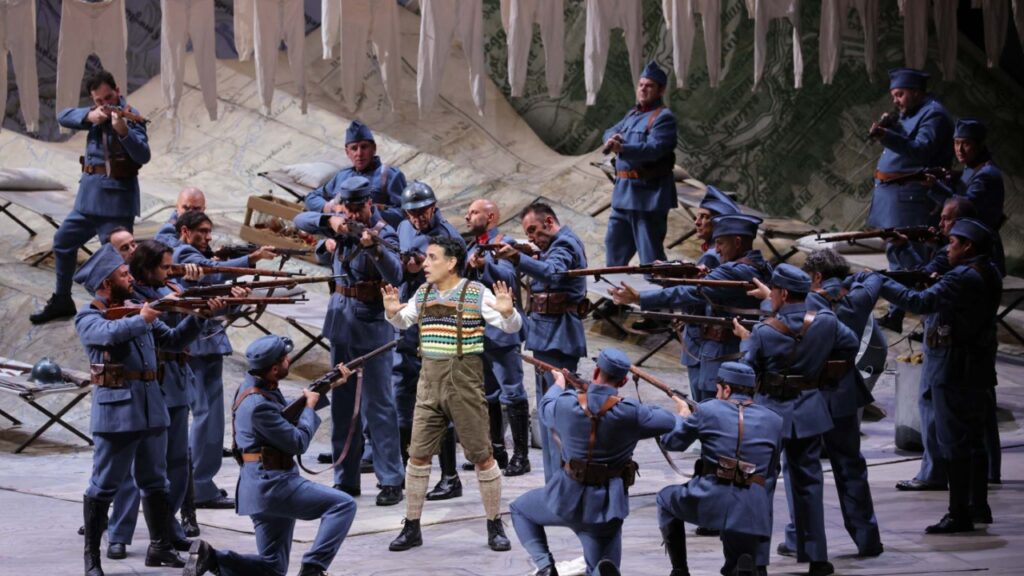
(Photo: Brescia e Amisano / Teatro alla Scala)
Stellar Cast
The cast brought together artists of the highest caliber, led by Juan Diego Flórez as Tonio, a figure inseparable from this production since its London debut eighteen years ago. The tenor maintains an exemplary legato line, masterful breath control, and innate elegance. The celebrated high notes of “Ah! mes amis, quel jour de fête” rang out with firmness and poise. But Flórez is more than a technical marvel: his portrayal blends innocence and youthful charm evident in the opening scene with the regiment “Allons, march’” with a conquering determination in the duet with Marie, “Depuis l’instant où, dans mes bras.” Yet it is in “Pour me rapprocher de Marie,” with its tender, melancholy final high note, that he shows his full artistry and reminds us why his Tonio remains the ultimate reference.
Julie Fuchs as Marie, triumphed with charm and energy. Her voice was light, agile, and well-focused. It had a flexibility that allows her to move effortlessly between coloratura brilliance and lyrical expressiveness. In “Chacun le sait, chacun le dit,” the soprano displayed playful virtuosity; in “Il faut partir,” a perfectly judged melancholy. A perceptive actress, her stage presence radiates naturalness and joy without excess. Particularly comic was the singing lesson scene in Act two, where she proved her strong acting ability as well. She formed an excellent partnership with Tonio and Sulpice, showing genuine vocal and dramatic rapport with the chorus.

(Photo: Brescia e Amisano / Teatro alla Scala)
Another stage gem that never disappoints was Pietro Spagnoli–a solid reference in the Mozartian and bel canto repertory–offered a textbook Sulpice: robust, resonant voice, impeccable phrasing, an ever-elegant comic flair, and flawless French diction. His chemistry with Fuchs in the duet “Rataplan, rataplan,” brimming with freshness and rapport, was among the highlights of the evening.
Géraldine Chauvet, as the Marquise de Berkenfield, displayed a warm-hued mezzo-soprano and controlled delivery, with notable acting ease, especially during the singing lesson scene. In the brief but delightful role of the Duchesse de Crakentorp, Barbara Frittoli once again demonstrated her stage charisma and command of comic timing.
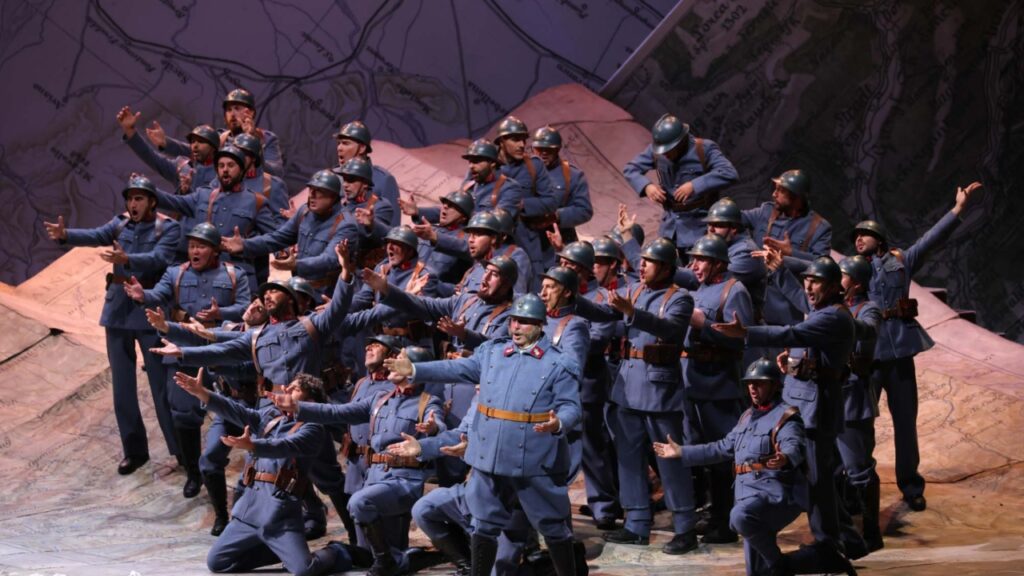
(Photo: Brescia e Amisano / Teatro alla Scala)
The supporting roles: Pierre Doyen (Hortensius), Emidio Guidotti (a corporal), Federico Vazzola (a notary), and Aldo Sartori (a peasant), were handled with accuracy and solid ensemble spirit.
As in every theater where this production makes its debut, and blessed with such a dream cast, “La Fille du Régiment” won over the hearts of the packed Scala’s audience (mostly foreign). Thunderous ovations rained down for the three protagonists, sealing an absolute triumph, even though Flórez declined to encore “Ah! mes amis” despite the audience’s insistence.

